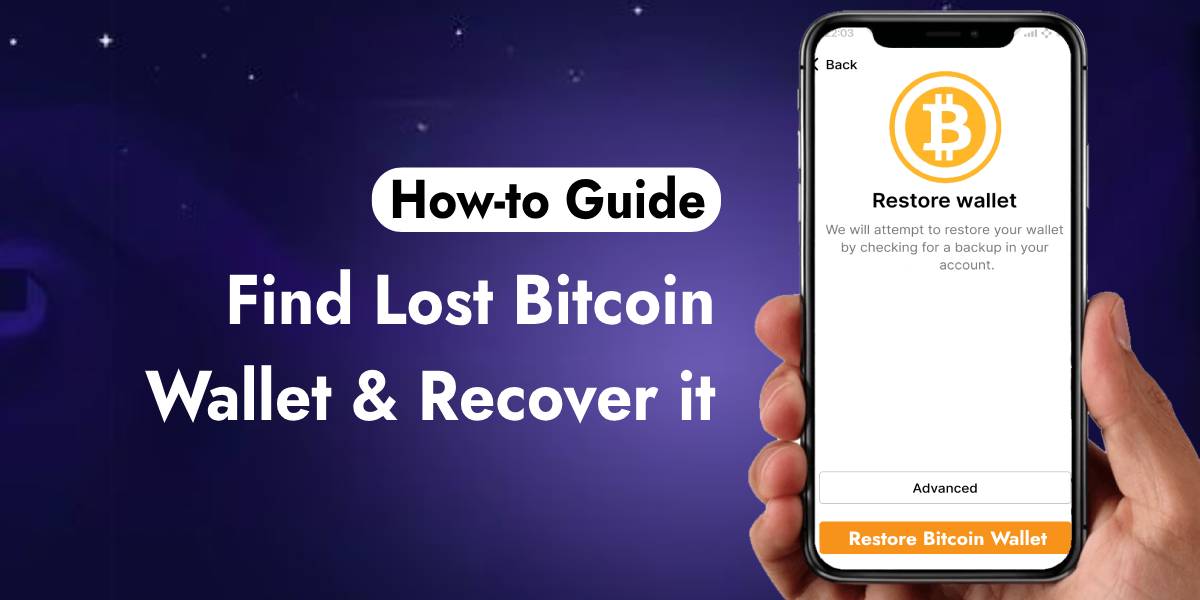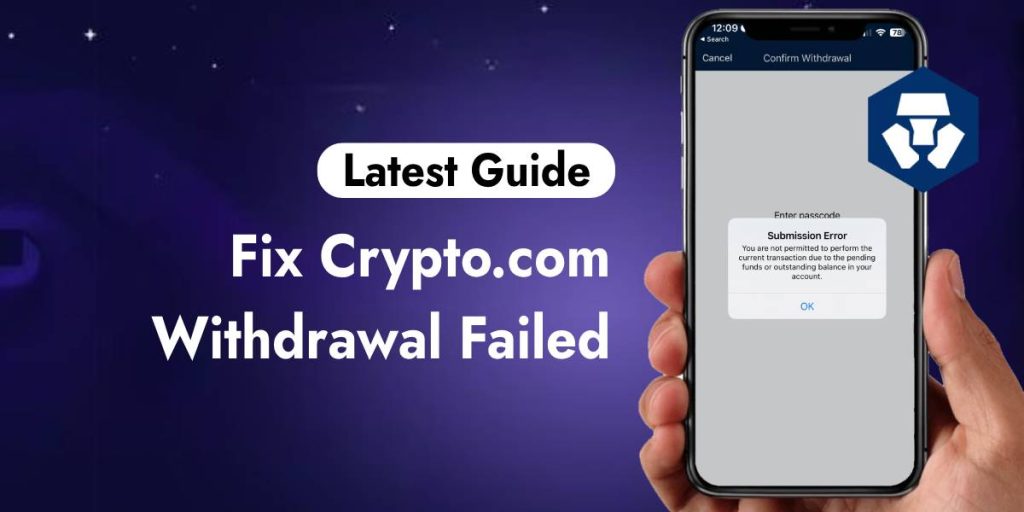Losing access to your Bitcoin can feel like losing a lot of money online. Whether it’s due to a forgotten password, misplaced wallet file, lost device, or accidental deletion—don’t panic. In many cases, your Bitcoin can still be recovered if you act fast and follow the right steps of how to find lost Bitcoin.
This guide walks you through every possible way to locate and recover your lost Bitcoin wallet using recovery tools, backup data, and professional support.
Key Takeaways of How to Find Lost Bitcoin
- Your wallet files might still be on your device or in a backup.
- Seed phrases and private keys are very important for getting your wallet back.
- Tools like Recuva, TestDisk, and PhotoRec can help find deleted files.
- If things get complicated, expert recovery services can help.
- Good security and regular backups can stop this from happening again.
Most Common Reasons Bitcoin Gets Lost
Understanding how Bitcoin is typically lost can help you trace back and recover it. Learning how to find lost Bitcoin is the first step toward successful recovery.
1. Deleted Wallet Files
Sometimes users delete old wallets unknowingly or during a system format.
2. Corrupted Hard Drives or Devices
Old laptops or USB drives used for storing Bitcoin might become unreadable due to hardware issues.
3. Forgotten Passwords
Wallets protected with encryption can’t be accessed without the correct password.
4. Lost Private Keys or Seed Phrases
If you misplace the 12- or 24-word seed phrase, you lose access to your crypto.
5. Old Wallet Software
Some Bitcoin wallets from early days are no longer supported, making recovery harder without technical tools.
How to Begin the Recovery Process of Lost Bitcoins
If you’ve lost access to your Bitcoin, don’t panic. Follow these simple steps of how to find lost bitcoin and recover it.
Step 1: Think Back and Remember
Try to remember how and where you stored your Bitcoin.
Ask yourself:
- What wallet app did you use? (Example: Electrum, Exodus, or Ledger)
- Was it on your computer, phone, USB, or written down on paper?
- Did you buy it from an exchange like Coinbase or store it yourself?
Check old emails, saved passwords in your browser, or notes you may have written down.
Step 2: Search for Wallet Files on Old Devices
You may still have wallet files saved on your old computer, USB drive, or cloud storage.
Look for these types of files:
wallet.dat- Electrum wallet folders
- Keystore or JSON files
Search in places like:
- Downloads folder
- AppData or Library folders on your computer
- USB drives, external hard drives, or old laptops
Use a file search tool if you have a lot of folders.
Step 3: Use a File Recovery Program (If Files Were Deleted)
If you think the wallet file was deleted, use recovery tools to try and bring it back.
Good tools include:
- Recuva – for Windows
- PhotoRec – works on all systems
- Disk Drill – for Mac
Save recovered files to a different folder or drive to avoid losing them again.
Step 4: Try to Remember or Recover Your Password
If your wallet is locked with a password and you forgot it, you can try using tools to guess it.
Helpful tools:
- BTCRecover
- John the Ripper
- Hashcat
Try common passwords or phrases you’ve used in the past. Even small clues can help.
Step 5: Rebuild Your Seed Phrase (If You Only Remember Part of It)
If you wrote down a 12- or 24-word recovery phrase and lost part of it, you might still be able to guess the missing words.
Use tools like:
- BIP39 Mnemonic Tool (used offline for safety)
Start with the words you do remember and let the tool help fill in the blanks.
Step 6: Check the Bitcoin Address Online
If you think you know one of your wallet’s Bitcoin addresses, check it on a blockchain explorer.
Use websites like:
- blockchain.com
- blockstream.info
You can:
- See if there’s still Bitcoin in the address
- Look at the history of transactions
This helps you confirm that the wallet is worth recovering.
Step 7: Restore Your Wallet
Once you have your wallet file, password, or seed phrase, you can try to searching for lost bitcoin wallet.
How to do this:
- Open the same wallet app (like Electrum or Exodus)
- Use the “Restore” or “Import Wallet” option
- If it’s a hardware wallet, choose “Restore from recovery phrase”
Always work with a backup copy of your wallet file—don’t edit the original.
How to Retrieve a Lost Crypto Wallet Without a Seed Phrase
Losing your seed phrase makes crypto recovery difficult, but not always impossible. The seed phrase is the main way to recover your wallet, but if you didn’t save it or lost it, here are a few ways you might still get your wallet back:
1. Look for Wallet Backup Files
Some wallets create backup files automatically when you install or use them. These files (like wallet.dat or JSON/keystore files) might still be on your computer or device. Try searching:
- Old computers, USB drives, or cloud storage
- Hidden folders like AppData or Library folders
2. Use File Recovery Software
If your wallet file was deleted, recovery tools like Recuva, PhotoRec, or Disk Drill can help you recover those files—especially from old devices.
3. Try Password Recovery Tools
If your wallet is still on your device but locked with a password, and you remember part of it, tools like BTCRecover can try to guess the password.
4. Check Browser and Exchange Logins
If you ever logged in to a crypto exchange (like Coinbase, Binance, etc.), you may have stored some of your crypto there. Use your email to recover your exchange account and check your balances.
5. Find Your Public Wallet Address
If you remember or find your public wallet address, you can check it on a blockchain explorer to see if it still holds funds. This can guide you on searching for lost bitcoin wallet whether it’s worth recovering.
6. Contact Wallet Support (If Applicable)
Some wallet providers offer limited help if you’ve lost access. While they can’t recover your keys, they might help guide you through recovery steps—especially for wallets linked to accounts (like MetaMask with email login). This is the process of how to find old bitcoin wallet and lost bitcoin wallet.
Can Stolen Bitcoin Be Tracked and Recovered?
Yes, stolen Bitcoin can often be traced thanks to the transparent nature of blockchain technology. Here’s how tracking and recovery are possible of how to find bitcoins:
How Stolen BTC Can Be Traced:
- Blockchain Transparency: All Bitcoin transactions are recorded on a public ledger, making it possible to trace movements.
- Blockchain Analytics Tools: Companies like Chainalysis track suspicious wallet activity and help identify addresses linked to theft.
- Exchange KYC Links: If thieves use exchanges with KYC (Know Your Customer) policies, their identities can be uncovered.
- Real-Time Monitoring: Flagged wallets can be monitored to prevent stolen BTC from being converted into fiat.
Can Stolen BTC Be Recovered?
- Law Enforcement Support: Agencies like the FBI and Interpol have recovered stolen BTC in past cases.
- Exchange Cooperation: Regulated exchanges can freeze and return stolen funds if alerted in time.
- Legal Action: Victims can file complaints or lawsuits to aid recovery efforts.
FAQs
Can I recover Bitcoin without a seed phrase?
Only if you have the original wallet file or private key. Otherwise, it’s not possible.
What if I formatted my hard drive?
Use tools like Recuva or PhotoRec immediately. Avoid installing software on the same drive.
Are recovery services safe?
Legit ones can help, but research thoroughly to avoid scams.
Conclusion
Losing Bitcoin doesn’t always mean it’s gone forever. With determination, the right tools, and sometimes professional help, many people have successfully recovered their lost bitcoin wallet.
Start by tracing your steps, searching for files, and using recovery tools. If all else fails in how to find old bitcoin wallet, consider reaching out to a reputable recovery service.
Above all, learn from the experience. Secure your wallets and backup data the right way, so your Bitcoin remains safe no matter what.


